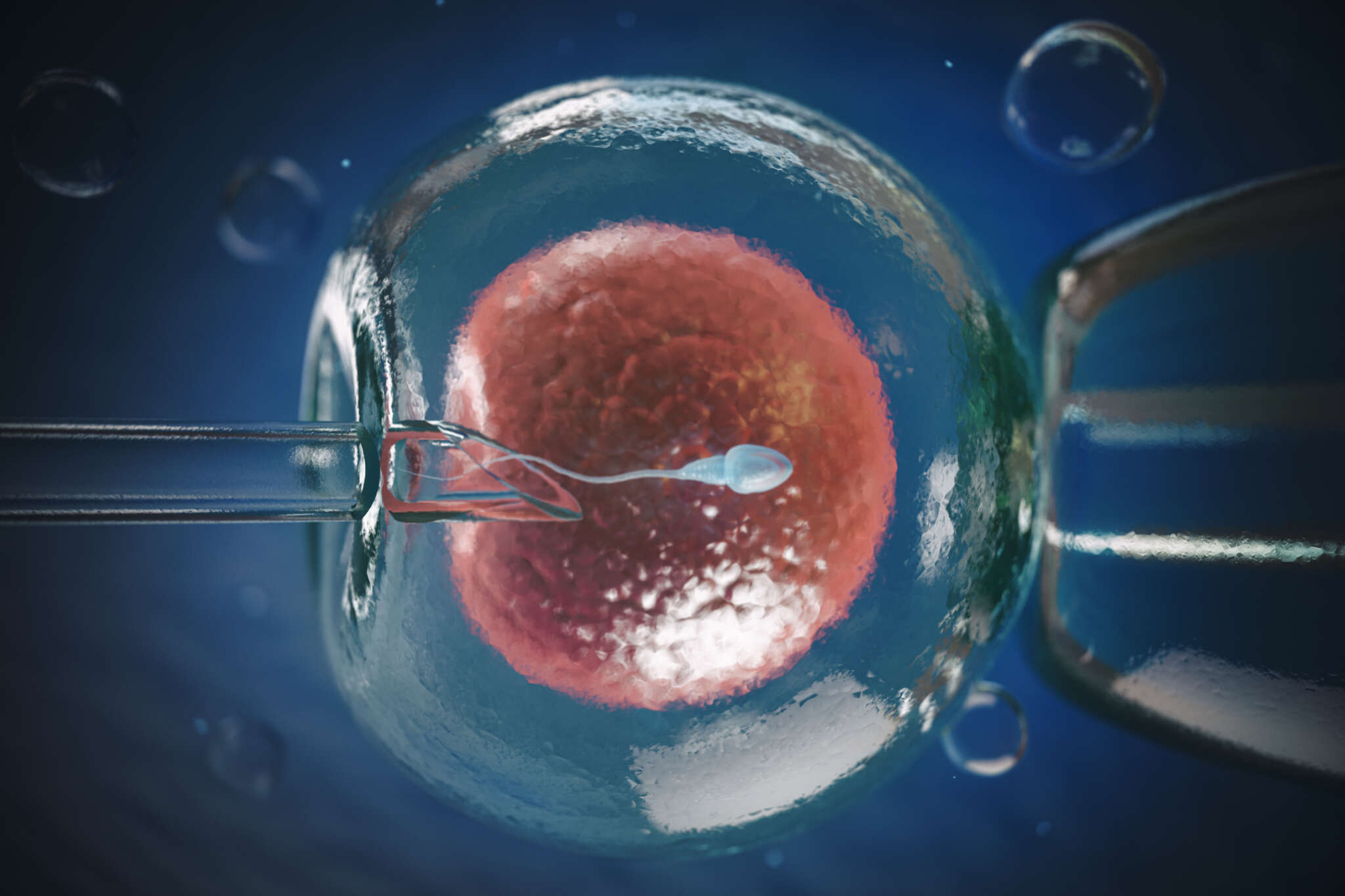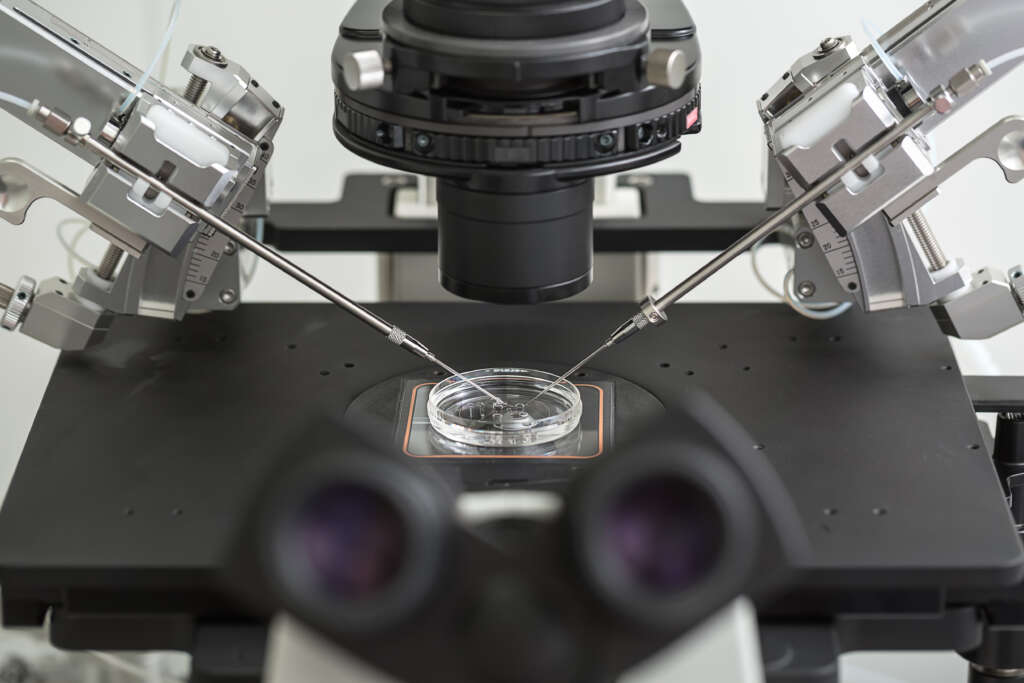
ICSI Treatment in Noida
Intracytoplasmic Sperm Injection, more commonly known as ICSI, is a specialised form of IVF or In Vitro Fertilisation technique primarily used to treat male infertility cases. In this procedure, the sperm is injected directly into the mature egg. The ICSI is an effective fertility treatment procedure that significantly helps treat men with infertility issues.


Who can be administered ICSI?
The doctor can recommend ICSI if:
- Your sperm don’t move normally (poor motility) or are abnormally shaped (poor morphology)
- You have a very low sperm count
- You’ve had IVF previously; very few or none of the eggs were fertilised.
- The sperm may not move in the normal fashion.
- You’re using frozen sperm in your treatment which isn’t of the highest quality.
- There is a blockage in the male reproductive tract.
- You need sperm to be collected surgically from the epididymis or testicles.
- The sperm may face issues attaching to the egg.
- Eggs have not been fertilised by traditional IVF, regardless of the condition of the sperm.
Thus, with the help of Intracytoplasmic Sperm Injection or ICSI, multiple fertility concerns are treated in men.
ICSI Success Rate
The procedure of ICSI has a high success rate. 50%-80% of the eggs are successfully fertilised through this procedure. However, certain problems may occur after or during the process of ICSI.
Some of the problems that generally occur during ICSI treatment have been listed below:
- The embryo may stop growing.
- All or some of the eggs may be damaged.
- The egg might not develop into an embryo even after it is injected with sperm.
The scientific advancement makes the procedure of ICSI more successful. And problems like this occur very rarely. However, the patient should seek expert guidance to ensure a successful fertility treatment.
Cost of ICSI Treatment in Noida, India
A single cycle ICSI treatment in Noida, India costs around 2.1 to 2.6 lakh INR. The price also covers the cost of the procedure done in the embryology lab and the cost of injections used to stimulate multiple egg development. Studies have shown that ICSI treatment boosts the success rate of pregnancy by 24%.
The Possible Risks Associated with ICSI
As far as the risk factor is concerned, ICSI is a medical procedure with very low risk. However, some risks are associated with the treatment procedure for ICSI. After taking sperm from males, it eliminates the risk involved. While retrieving the sperms, some risk is involved, but that is negligible.
Some of the known risks involved in ICSI techniques are listed below:
- Multiple pregnancies: A couple trying the technique of IVF and ICSI have a 5-6% chance of having triplets, and a 30-35% increased chance of conceiving twins. When the mother carries multiple babies, risks such as gestational diabetes, high blood pressure, premature labour, low amniotic fluid level, and the need for cesarean section increase.
- Embryo damage: Not all the eggs that are extracted from the women fertilise into a healthy embryo. Some of the eggs and embryos get damaged during the treatment procedure for ICSI.
- Congenital disabilities: There is a 1.5%-3% chance of significant congenital disabilities with normal birth. However, with the ICSI treatment technique, the chances of congenital disability slightly increase. Some congenital disabilities associated with ICSI are sex chromosome abnormalities, Beckwith-Wiedemann syndrome, hypospadias, and Angelman syndrome. It is also possible that genetic transfer of infertility occurs during this process. However, such congenital disabilities are very rare, and it is unlikely with the advancement of technology and science.
It is because of these associated risks doctors do not recommend ICSI with every IVF cycle. The technique of ICSI is recommended only when it becomes essential (for example, the sperm collected has mobility and motility issues). If the situation requires, one should consult with the doctor before starting the treatment. If fertility issues can be treated with IVF, then considering ICSI is not required.
However, the success of the ICSI procedure depends on the individual patient and their health condition. Research conducted has shown that 25% of the patients have successfully conceived after the first attempt. It is necessary that one view the procedure of ICSI to fuse the sperm and the egg. ICSI is in no way an assurance of pregnancy.

Benefits of ICSI technique
The fertility treatment technique of ICSI has multiple benefits. Some of the key benefits have been listed below:
- ICSI helps to increase the success rate of IVF. Almost 50%-80% of the eggs are fertilised in the first place during this technique.
- ICSI treats male infertility.
- ICSI also increases the chances of successful fertilisation under normal insemination (like the IUI technique).
- ICSI increases the number of fertilised eggs available for transfer or freezing.
- Couples who want twins or triplets can consider IVF and ICSI because this technique increases the chance of having twins and triples.
Thus, with the help of Intracytoplasmic Sperm Injection or ICSI, multiple fertility concerns are treated in men.
Do You Have Any enquiries?
Personalized Care Combined With Cutting Edge Technology!